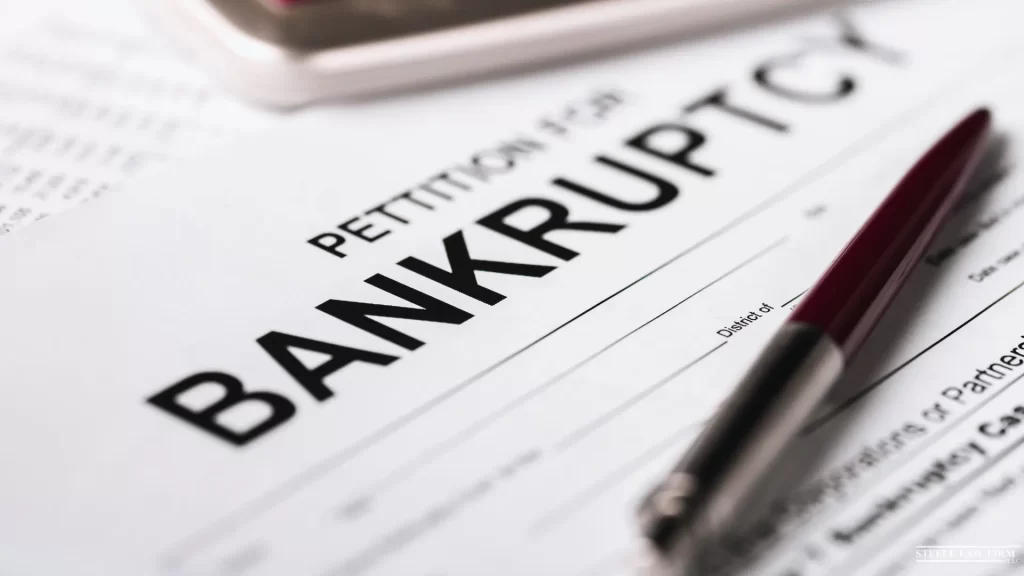Hearing phrases like Chapter 7 or Chapter 13 bankruptcy might cause some confusion. What are the differences? What are the types of bankruptcies in Texas? Identifying and understanding the different types of bankruptcies in Texas can help you determine which will offer you the most benefits. Though this list may be helpful, consulting with a North Richland Hills bankruptcy attorney is the most effective way to determine the route that is right for you.

Chapter 7 bankruptcy, also known as straight or liquidation bankruptcy, involves the debtor selling non-exempt assets. The proceeds from those sales will be used to pay back creditors. After non-exempt assets are liquidated and used to pay debts, Chapter 7 allows the discharge of most remaining debts.
Fortunately, Texas has exemptions that allow you to keep most of your property while going through Chapter 7, including:
Some debts are not dischargeable in Chapter 7, including:
These exemptions are not automatic and must be specifically requested. To qualify for Chapter 7, the filer must pass a means test showing that they cannot pay their debts.
Chapter 13 bankruptcy, also known as reorganization bankruptcy, is when the debtor agrees to repay what they owe over 3-5 years through a more manageable monthly plan. These payments will go to the bankruptcy trustee, who will administer the payment. When the plan ends, the remaining debts are discharged. Chapter 13 has a debt limit to be aware of, though, which applies to both secured and unsecured debts. An attorney can help you determine if your debt exceeds these limits.
Chapter 13 bankruptcy is less common than Chapter 7 because Chapter 7 has a quicker process, typically resolving in a few months. It allows for the discharge of most unsecured debts without repayment, and the debtor is more likely to have an income below the median, which allows them Chapter 7 eligibility.
Chapter 11 bankruptcy is a reorganization bankruptcy primarily used for businesses. The goal is to allow the business to reorganize its debts and business affairs while continuing to operate. The business can restructure debts, negotiate contracts, and sell assets.
While Chapter 11 can be time-consuming, complex, and subject to court approval and oversight, many businesses may find it advantageous because they can continue to operate, maintain customer relationships, and retain their staff.
In certain cases, individuals with substantial debt and complex financial situations can file under Chapter 11, especially if their debt limit is higher than Chapter 13 allows.
After the Chapter 11 plan is completed, the debtor will have the remaining debts discharged.
Chapter 12 bankruptcy is specifically for family farmers and fishermen. It allows them to reorganize their debts while continuing to operate their businesses. A repayment plan will be created, and similar to Chapter 13, the debtor will repay creditors over 3-5 years. After the repayment period, the remaining eligible debts will be discharged.
This type of bankruptcy chapter allows the repayment plan to be tailored to fit the seasonal and fluctuating income that is common in farming and fishing operations. The business owners are also able to continue operations without giving up their livelihood.
Choosing the right bankruptcy chapter for your financial situation will involve considering the type and amount of debt, income, assets, long-term goals, and eligibility requirements. We recommend that you consult with an experienced bankruptcy attorney who can help assess your finances, explain your options, and provide personalized advice.
A: Non-dischargeable debts in bankruptcy include child support, spousal support, certain tax debts, debts from willful and malicious injury, debts from fraud or false pretenses, student loans, fines or penalties owed to government agencies, secured debt like mortgages or car loans, and any debts that are not listed in the bankruptcy filing.
A: Texas has some of the most generous exemptions among the states to protect certain property. The main exemptions available are the Homestead Exemption, which protects unlimited value for a primary residence; the Personal Property Exemption, including up to $100,000 per family; and the Motor Vehicle Exemption, which protects one vehicle per licensed household member.
A: Yes, bankruptcies can be denied. Some common reasons are the filer's failure to complete credit counseling, incomplete or inaccurate paperwork, evidence of fraudulent activity, the filer's failure to attend mandatory meetings, excessive spending, or taking on too much new debt. If the filing is denied, it can be dismissed with or without prejudice. Dismissal with prejudice imposes a time on refiling and makes some debts non-dischargeable.
A: The cost of filing for bankruptcy will include court fees and other associated legal fees. The court filing fee will be the first fee but not the last. There may be additional costs for credit counseling and education courses, along with Chapter 13 repayment plan costs. If you have concerns about potential fees, it is important to discuss them with an attorney to understand the cost of your specific case.
A: Yes, bankruptcy will affect your credit score, but over time, as you rebuild, your credit score will improve. At first, it will drop significantly when you file, as it is a serious financial event. The type of bankruptcy you choose will impact how long your credit is affected.
Understanding the types of bankruptcy that may work for your situation can be a challenge, so contact Steele Law Firm, PLLC, today. We can look at your options and get you on the road to financial freedom.




